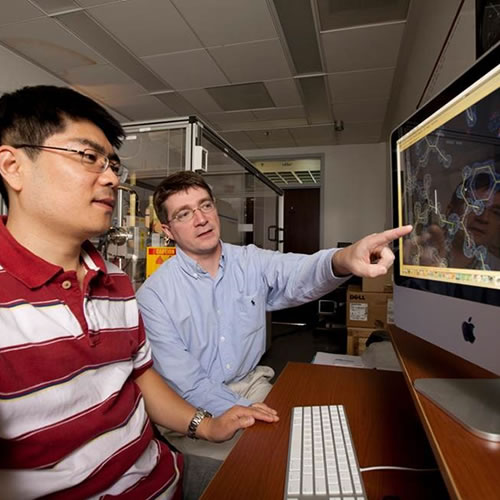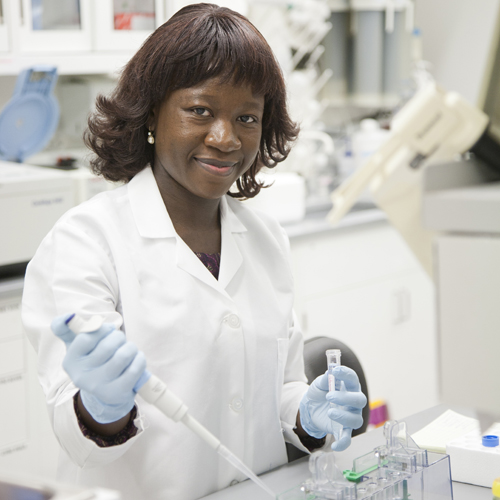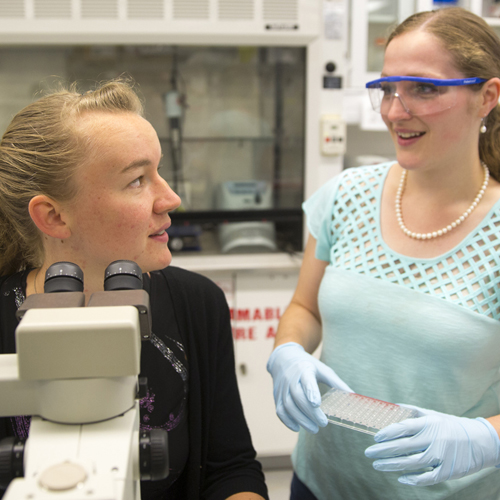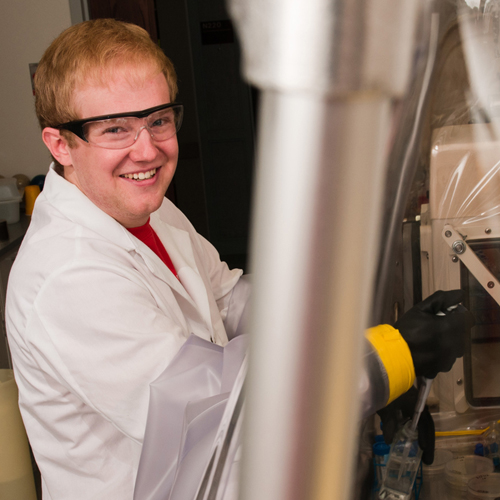Our program is positioned at the interface of the physical sciences (bioinorganic, bio-organic, biophysics), the biological sciences (genetics and molecular biology), and the applied sciences (biotechnology). Such breadth in expertise provides a rich training environment that encourages creative interdisciplinary problem-solving and discovery. Our Department fosters growth of productive students into successful career professionals. Within the below research training strengths, faculty and students are investigating a variety of experimental questions relevant to basic, agricultural, and biomedical research.

Structural and Chemical Basis of Protein Function
Research in the area of structural and biophysical chemistry is a central strength of the Department of Biochemistry. Projects are aimed at understanding the molecular underpinnings of biological function, and provides a framework to develop novel therapeutics and direct metabolic engineering efforts. Structure/function projects are enriched by the NIH-funded Center of Biomedical Research Excellence (COBRE) Nebraska Redox Biology Center (RBC) and close partnership with the Nebraska Center for Biotechnology.
Learn More
Metabolism and Metabolic Engineering
The Department of Biochemistry has strong basic and translational research programs in metabolism and metabolic engineering, especially using plant and microbial systems. Research in this area is aimed at applying knowledge of metabolism to solve complex biological problems using both systems and synthetic biology approaches. Research goals encompass manipulating metabolic pathways to enhance crop
nutritional quality, produce renewable energy and renewable chemicals, regulating metabolic pathways under stress conditions, and identifying potential therapeutics for complex disease.

Molecular Mechanisms of Disease
The NIH-funded Molecular Mechanisms of Disease (MMoD) predoctoral training program provides innovative training and career development in biomedical research centered on molecular interactions and chemical transformations. The goal of the program is to develop outstanding new scientists who work in collaborative multi-disciplinary teams to research disease mechanisms using quantitative approaches that ultimately yield tangible strategies for prevention and therapy.
Learn More
Plant and Microbial Biochemistry and Biotechnology
Researchers use their expertise in biochemistry, genetics, and molecular biology to understand metabolism and development of plants and microbes. Research in plant and microbial biochemistry is interdisciplinary and benefits from close ties to the Center for Plant Science Innovation, the Redox Biology Center, the Center for Biotechnology, and NUTech Ventures, among others. Basic science discoveries are translated into commercial products and processes such as increased crop nutrition, higher biofuel yields, or generating drugs and chemicals from renewable feedstocks.
Learn More
Computational and Systems Biology
Computational and Systems Biology in the Department of Biochemistry is aimed at discovering patterns in cell metabolism, signalling, stress response and disease using computer science and information theory. Research is geared towards developing a spectrum of systems biology and biochemical informatics approaches in support of
existing research questions being addressed in the department. This will range from bottom-up
approach of defining and modeling the core molecular mechanisms/algorithms that cells use to solve fundamental regulatory problems to the top-down approach of high-throughput data analysis and mapping of complex networks.